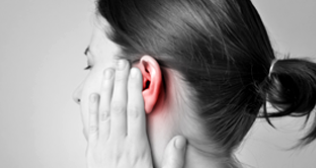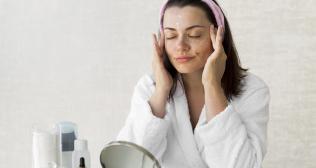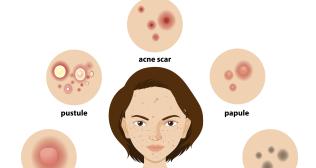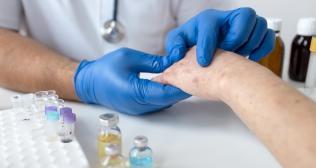
10 Home Remedies for Dandruff and Itchy Scalp That Work
Those persistent white flakes on your shoulders and that maddeningly itchy scalp; dandruff is a common condition that can be both embarrassing and uncomfortable. While the market is flooded with medicated shampoos and chemical treatments, many people are looking for gentler, more natural solutions. The good news is that your kitchen and garden may hold the secret to a flake-free, healthy scalp. An effective dandruff treatment doesn't always have to come from a bottle.
Embarking on a dandruff treatment at home can be a powerful way to take control of your scalp health. If you've been wondering how to get rid of dandruff using natural ingredients, this guide is for you. We will explore 10 of the most effective home remedies for dandruff that can help soothe your scalp and manage those pesky flakes for good.
First, What Causes Dandruff?
Before diving into the remedies, it helps to understand what you're dealing with. Dandruff is essentially the shedding of dead skin cells from the scalp. While a small amount of shedding is normal, dandruff occurs when this process speeds up. The primary causes include:
- Malassezia globosa: A common fungus that lives on the scalp of most adults. For some, it can irritate the scalp and cause excess skin cell growth.
- Oily, Irritated Skin (Seborrheic Dermatitis): This is one of the most frequent causes of dandruff, marked by red, greasy skin covered with flaky white or yellow scales.
- Dry Skin: People with very dry skin can get dandruff, though the flakes are usually smaller and less oily.
- Sensitivity to Hair Care Products: Certain ingredients in shampoos or styling products can irritate the scalp and cause redness and flaking.
10 Effective Home Remedies for Dandruff
Here are ten tried-and-tested natural remedies to help you learn how to remove dandruff and soothe an itchy scalp.
1. Tea Tree Oil
- Why it works: Tea tree oil is a potent natural antiseptic with powerful anti-fungal and anti-inflammatory properties, making it an excellent dandruff treatment. It directly combats the Malassezia fungus that often causes dandruff.
- How to use: Never apply tea tree oil directly to your scalp, as it is very strong. Add 5-10 drops to your regular bottle of shampoo and shake well. Wash your hair as usual.
2. Coconut Oil
- Why it works: Coconut oil is deeply moisturizing, which helps to combat the dryness and flaking associated with dandruff. It also possesses anti-fungal properties that can help restore scalp health.
- How to use: Gently massage 3-5 tablespoons of lukewarm coconut oil into your scalp. Leave it on for at least an hour, or even overnight, then wash your hair thoroughly with a gentle shampoo.
3. Aloe Vera
- Why it works: Known for its soothing properties, aloe vera is a fantastic remedy for an itchy, inflamed scalp. Its anti-fungal and anti-bacterial qualities help reduce inflammation and control the flaking.
- How to use: Apply pure aloe vera gel directly from the plant or a store-bought version to your scalp. Let it sit for about 30 minutes before rinsing and shampooing.
4. Apple Cider Vinegar (ACV)
- Why it works: ACV is one of the most popular home remedies for dandruff. It helps to balance the pH of your scalp, making it harder for yeast to grow. It also acts as a natural clarifier, removing product buildup that can clog pores.
- How to use: Mix equal parts ACV and water. After shampooing, pour the mixture over your hair, gently massage it into your scalp, and let it sit for 15 minutes before rinsing it out.
5. Neem
- Why it works: Neem is a powerhouse of anti-fungal and anti-bacterial properties. It has been used for centuries in traditional Indian medicine as a comprehensive dandruff treatment at home.
- How to use: Boil a handful of neem leaves in water, let it cool, and then strain it. Use this water as a final rinse after you shampoo your hair.
6. Baking Soda
- Why it works: Baking soda acts as a gentle exfoliant, helping to scrub away excess skin cells and oil. It also has anti-fungal properties that can help control the underlying cause of dandruff.
- How to use: Make a paste by mixing a few teaspoons of baking soda with a little water. Apply it directly to your wet scalp and gently scrub for a minute or two. Rinse thoroughly with water (do not shampoo immediately after).
7. Lemon Juice
- Why it works: The citric acid in lemon juice helps to adjust the scalp's pH level. It's an effective method for those wondering how to remove dandruff caused by an alkaline imbalance.
- How to use: Massage 2 tablespoons of lemon juice into your scalp and let it sit for a minute. Then, stir 1 teaspoon of lemon juice into a cup of water and rinse your hair with it. Use this remedy cautiously, as it can be irritating for sensitive skin.
8. Fenugreek (Methi) Seeds
- Why it works: Fenugreek seeds are rich in protein and nicotinic acid, which help strengthen hair roots and prevent dandruff. They also have excellent conditioning properties.
- How to use: Soak two tablespoons of fenugreek seeds in water overnight. In the morning, grind them into a fine paste. Apply this paste to your scalp and leave it on for 30 minutes before washing your hair.
9. Yogurt (Dahi)
- Why it works: Plain yogurt is rich in probiotics and its acidic nature helps to keep dandruff in check. It's a soothing and moisturizing treatment for an irritated scalp.
- How to use: Apply plain yogurt to your scalp and hair, covering it completely. Let it sit for about an hour before rinsing it out with a mild shampoo.
10. Aspirin
- Why it works: This might be surprising, but aspirin contains salicylic acid, a key active ingredient in many commercial anti-dandruff shampoos. Salicylic acid helps to exfoliate the scalp and loosen flakes so they can be washed away.
- How to use: Crush two aspirin tablets into a fine powder and mix it with your normal amount of shampoo. Lather it into your hair, let it sit for 1-2 minutes, then rinse well.
When to See a Doctor
While these home remedies can be very effective, there are times when a professional dandruff treatment is necessary. If your symptoms are severe, your scalp is very red or inflamed, or if these remedies don't provide relief after a few weeks, it's best to consult a dermatologist.
A Natural Path to a Healthy Scalp
Figuring out how to get rid of dandruff can be a process of trial and error, but nature has provided a wealth of effective solutions. By incorporating these gentle yet powerful remedies into your hair care routine, you can manage flakes, soothe irritation, and restore your scalp to its healthy, balanced state.
Frequently Asked Questions
1. How often should I use these home remedies?
Ans. Most of these treatments can be used once or twice a week. It's important not to overdo it, as this can sometimes irritate the scalp further.
2. Can dandruff cause hair loss?
Ans. Dandruff itself does not directly cause hair loss. However, the constant, intense scratching associated with a severe case can damage hair follicles and lead to some hair fall.
3. Is oiling my hair good for dandruff?
Ans. It depends. For dandruff caused by dry skin, moisturizing oils like coconut oil can be very beneficial. However, for dandruff caused by an oily scalp, adding more oil might worsen the problem.
4. Why does my dandruff keep coming back?
Ans. Dandruff is often a chronic condition. The underlying causes, like the Malassezia fungus, are always present on the scalp. Consistent treatment and good scalp hygiene are key to keeping it under control.
5. Can I combine different home remedies?
Ans. It's best to try one remedy at a time to see how your scalp reacts. Combining too many ingredients at once could lead to irritation.


















